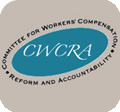| Home | Press Home | In the News | Momentum may be shifting against Davis
September 29, 2003 Momentum may be shifting against Davis Tom Chorneau, San Francisco Chronicle
No one is quite sure when or how it happened, but there is a growing sense among analysts Monday that Gov. Gray Davis’ drive to defeat the recall has lost momentum. Some blame the court case that interrupted the campaign last week at a critical point. Others point out the state’s higher car tax bills are just now hitting the mailboxes and igniting new voter anger. There are also some who say the performance of Republican front-runner Arnold Schwarzenegger in the big debate last week has somehow turned the tide. “Up until a few days ago, I would have said that the momentum appeared to be with the governor and against recall, but now I’m not so sure,” said Sherry Bebitch Jeffe, a political analyst at the University of Southern California. Jeffe noted that a new CNN/USA Today/Gallup poll, released Sunday, found that 63 percent of probable voters appear ready to remove Davis from office and 40 percent want to replace him with Schwarzenegger. There is also a new, aggressive push by Davis to have a debate with Schwarzenegger — a sign, Jeffe said, that Davis may be getting nervous himself, perhaps because his internal polling is showing the same trends as the CNN/Gallup poll. Then there is a sense that Lt. Gov. Cruz Bustamante, the other leading Democrat in the race, has also fallen, largely because of criticism about him taking huge sums of money from Indian gaming interests. Bustamante’s failures may have been a boost to Schwarzenegger, she said. Davis supporters have been highly critical of the CNN/Gallup poll arguing that the representative pool of voters is unrealistically weighted with Republicans. They point out that all other public polls taken in the last month show voters badly split over the issue of recalling Davis and the contest to replace him a dead heat between Schwarzenegger and Bustamante. “No one else has numbers even close to this,” said Larry Grisolano, Davis’ campaign manager. But other Democrats are not so sure. Harvey Englander, a Los Angeles-based consultant, said that he has seen private polling that supports the CNN/Gallup numbers. David Binder, a Democratic pollster based in San Francisco, said he’s seeing much of the same thing — that voters appear to be moving back in favor of recall. “As Cruz is beginning to look like Gray Davis-lite, voters are looking around saying that they really don’t like politicians,” said Englander. “And the only non-politician with a chance of winning is Arnold.” Doug Schoen, a Democratic pollster who has worked for former President Clinton, said that the unique nature of the recall election is such that no pollsters knows with any certainty what voters are likely to turnout in this election and which ones will stay home. He pointed out that the CNN/Gallup poll found 55 percent of registered voters would support recall — a figure much closer to other recent surveys. But when Gallup statisticians applied a “turnout model” to the data, in an attempt to focus on “probable” voters, the percent of those supporting the governor’s recall jumped to 63 percent. “We don’t know if that turnout model will be correct,” Schoen said. “They may be right, they may be wrong.” Schoen pointed out the hardest segment of the population to survey are low-income and minority voters and Democrats will be spending millions of dollars in the next week encouraging those voters to the polls. Gallup executive editor Frank Newport defended his survey saying the pool of voters they used was not overly Republican. He explained that they assembled an initial pool of “probable” voters that was 49 percent Republican — a far higher ratio than might be expected on Election Day. But he said, the “turnout model” actually reduced the Republican influence in the poll results to be even with those of Democrats — an estimate that is based both on statistics and experience with California elections, he said. |
| | Monday, June 7, 2004 | | |
 | |
| Home | |
| CALIFORNIA RECOVERY TEAM | |
| About CRT | |
| GET INFORMED | |
| About Arnold | |
| Leadership | |
| Endorsements | |
| News Room | |
| Opinion | |
| JOIN THE TEAM | |
| Contribute | |
| Volunteer | |
| Share Your Views | |
| SERVICES | |
| Image Center | |
| Multimedia Center | |
| Downloads | |
| Search News | |
| Privacy Policy | |
| Contact Us | |
| ||||||||||||||||
|
Contact Us Privacy Policy |
Copyright © 2003 |


